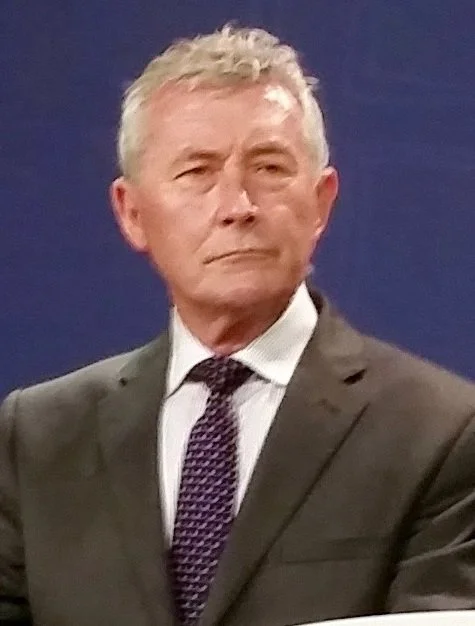Australia's Shadow AG criticises dropping of charges against Collaery
Bernard Collaery. By Jack bulldog 2012 at English Wikipedia, CC BY-SA 4.0, https://commons.wikimedia.org/w/index.php?curid=113936948
Earlier this year, incoming Australian Attorney General Mark Dreyfus decided to end the prosecution of Bernard Collaery, a lawyer and former AG for the Australian Capital Territory (ACT). Collaery was being prosecuted for his role in revealing an Australian surveillance operation on Timor-Leste. The whistleblower - a former member of Australia’s security services known as Witness K - was Collaery’s client.
Shadow AG Julian Leeser used parliamentary privilege to make what the news site Crikey called “an extraordinary and false attack,” alleging the decision to drop the prosecution had been made for party political reasons, since Collaery had held political office in a Labor government. The allegation is factually wrong as Collaery was elected as a member of a minor party, and served as Attorney General from 1989-1992 under a Liberal administration.
Leeser used an obscure consideration in detail process in the Federation Chamber to ask a lengthy question of Dreyfus before hastily exiting the room prior to Dreyfus responding. He called Dreyfus’ decision “extraordinary and unexplained,” and repeated accusations against Collaery and Witness K. In the course of his question, Leeser cited former Director of Public Prosecutions (DPP) Sarah McNaughton who had previously claimed that prosecution was in the public interest.
“What message does this send to people who might deal in Australia’s secrets?” Leeser said. “What warranted this action?”
The Collaery case exposed spying by Australian state spy agency on the East Timorese cabinet at a time when Australia was negotiating a treaty with its newly-independent, and much poorer, neighbour. The Australian oil and gas industry was a major beneficiary of the spying, which had resulted in an inequitable agreement over the sharing of natural resources in the East Timor Sea.
In July Dreyfus dropped the prosecution against Collaery after enormous public outcry about the case, much of which had proceeded in secret, away from public view. Collaery had been facing trial on five counts of leaking classified information. At the time, Collaery said the end of the prosecution was “a good decision for the administration of justice in Australia” that would allow him to “move forward with life and legal practice.”
Leeser’s misrepresentation of Bernard Collaery opens the possibility of investigation by the Standing Parliamentary Privileges Committee, though it is not clear whether any parties will make a formal complaint.
In its coverage, Crikey noted that Leeser had previously refused to rule out a resumption of the Collaery prosecution under a future Liberal administration. “Having not let decency stand in the way of its persecution of Collaery, it now seems the Coalition won’t let the facts get in the way either,” it noted.
Any reopening of the Collaery prosecution would represent a grotesque misuse of state power and a dangerous attack on whistleblowers’ right to seek legal representation.
Bernard Collaery is the winner of the 2020 Blueprint International Whistleblowing Prize.

